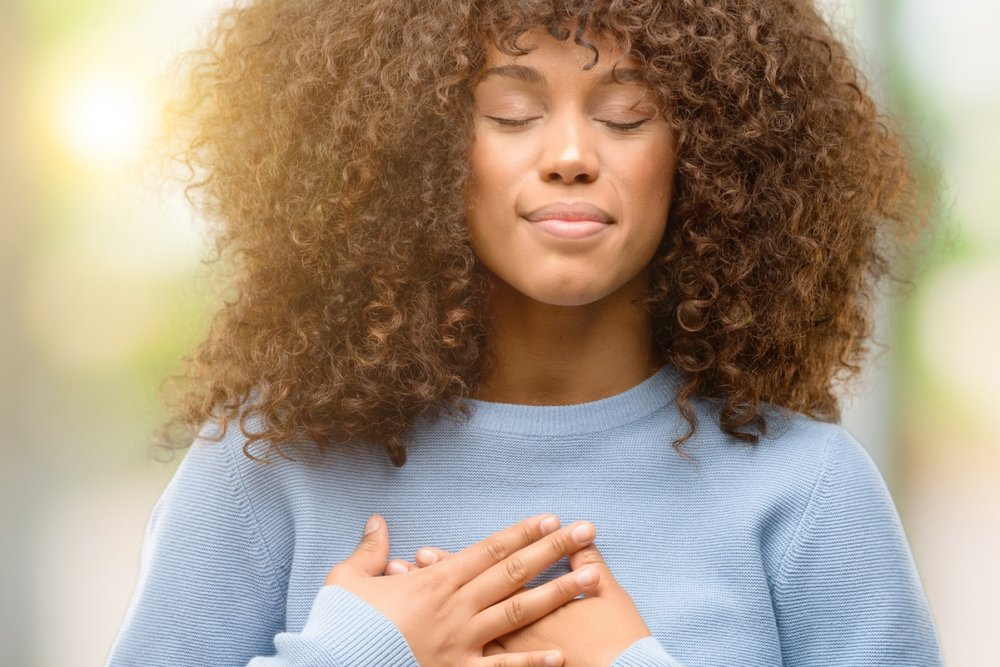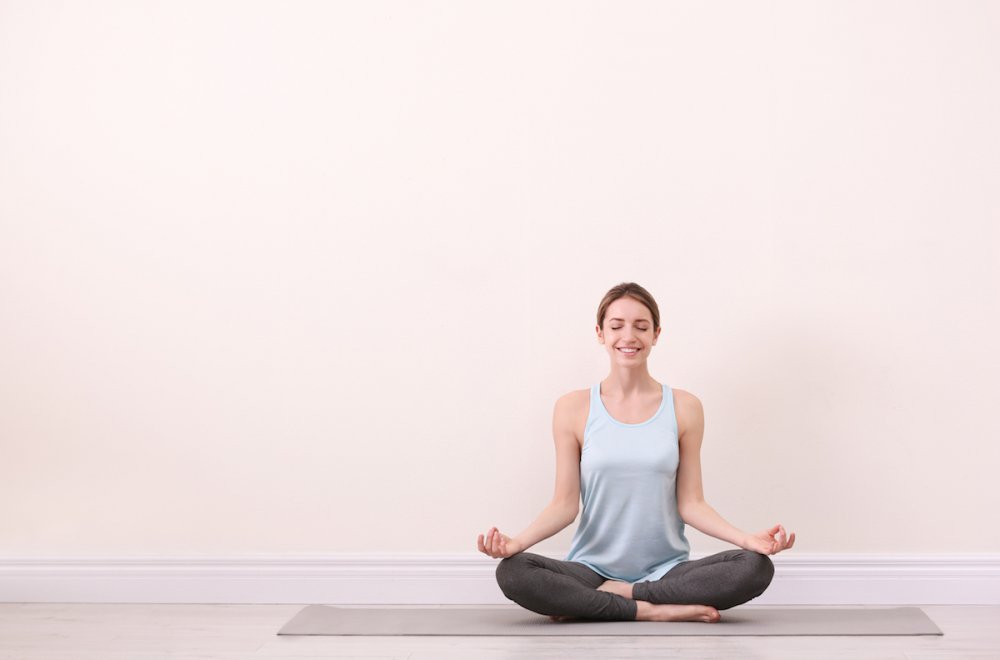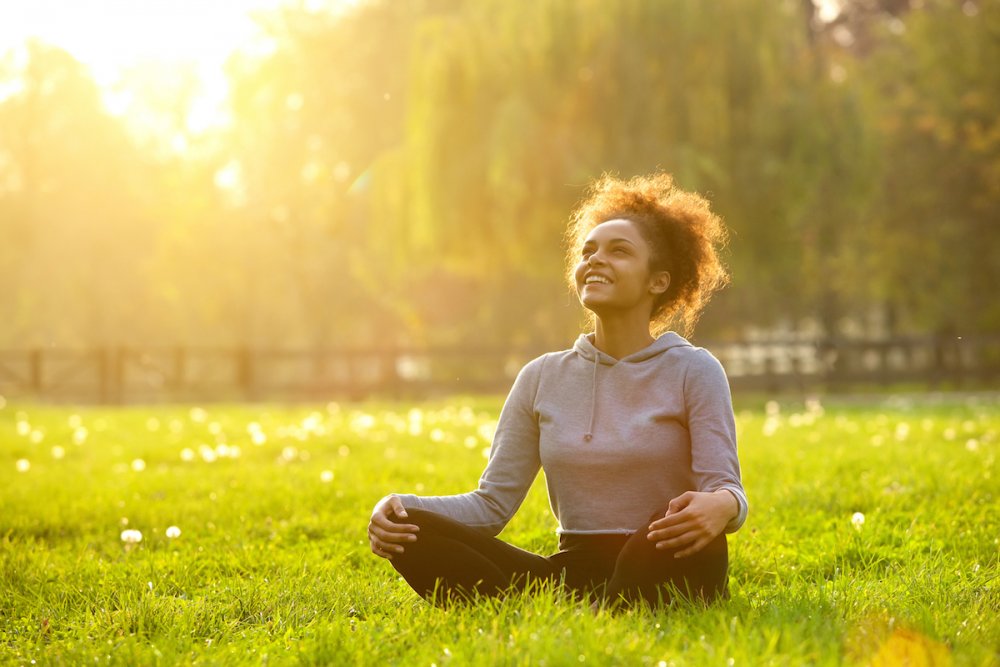Confidence is a powerful quality that sometimes slips away from us. But you can rebuild and strengthen it confidence with meditation. Ann Vrlak offers up a meditative practice that you can incorporate into your daily life to build resolution, courage and faith in yourself.
Confidence is a quality that pretty much everyone admires and most of us would like to have just a bit more of. It’s a powerful quality that we all define a little differently based on our values and personal history. I’ll talk later about how knowing your definition can help you be more confident.
Here are a few of my ideas about what confidence is and why it’s such a great quality to nurture. When you’re confident, you have a simple, unshakeable trust in yourself. You know who you are, what your talents and gifts are, as well as the places you may still want to grow. You know you can handle whatever comes your way, either the expected or the unexpected.
You’re not even troubled by what others might think of you because you know yourself. It’s not as if you feel invincible or nothing can hurt you. But you have learned through experience that you’ve made it through challenging situations – some big ones and lots of everyday ones. You know how to problem solve, handle a difficult emotion, resolve a conflict with someone close to you, or take time for healing.
Sounds pretty awesome, doesn’t it?
What can you do when you’re confident?
First of all, real confidence doesn't mean having a big ego. When you have real confidence, you don’t need to prove anything to yourself or to anyone else.

Build confidence through meditation practice shutterstock/Krakenimages.com
When you’re confident, other people can feel it. They may not even know why they like you and feel calm around you. You’ll feel like a stable rock in a river: solid and present while events happen all around you. Maybe you already know someone like that.
Furthermore, you’re more open and perceptive. You’re not spending energy on self-doubt or wondering what other people might think of you. You’re paying attention to what’s happening and how to respond in a genuine, clear and caring way.
What builds confidence?
So, how do you build or strengthen your confidence? It happens in two ways:
- Through responding skillfully to internal and external experiences of different kinds
- By finding a place of strength at the centre of your being
You learn how to respond to the internal experiences we all have: thoughts, physical pain, worries, emotions, stress. And you learn to do the same with external experiences: conflicts with others, financial pressures, challenges at school.
How do you learn this? Through practise. You watch for ways to practise confidence: over and over in day-to-day life and through practising meditation for confidence.
“Real confidence doesn't mean having a big ego. When you have real confidence, you don’t need to prove anything to yourself or to anyone else.”
I’m going to show you a specific meditation for confidence practice. However, any traditional meditation practice can build your confidence: by teaching you, step by step, to meet every inner and outer experience with kindness and curiosity and, in doing this, discovering an unshakeable centre inside you.
“You gain strength, courage and confidence by every experience in which you really stop to look fear in the face. You are able to say to yourself, 'I have lived through this horror. I can take the next thing that comes along.' You must do the thing you think you cannot do.” ― Eleanor Roosevelt
As you practise these skills, on the quiet of your meditation seat, you’ll automatically see how your confidence with external events changes. You’ll gradually shift from tensing or withdrawing from discomfort, to being more open and curious – and confident.

Meditation increases curiosity and confidence shutterstock/New Africa
It’s helpful to know that meditation is a life practice that, at first, goes against the grain. When something feels uncomfortable, inside or outside of us, we’re biologically wired to get away from it. It’s a smart and functional survival tool!
Most of us have developed a whole range of ways to “get away,” by binge watching media, eating, drinking and other distractions. You might feel temporarily better because you avoided the discomfort. But, you haven’t learned how to handle it any better the next time. And, not only that, you reinforce the belief that you can’t handle it and your confidence takes a dive.
Meditation for confidence practice
Would you like to try a meditation for confidence practice? Most people find this one really enjoyable, myself included! It’s based on creating a strong visualization of yourself in a confident state. It has three steps.
Step 1
Explore and define what confidence means to you. Why? Because confidence probably means something quite different to you than it does to me. And knowing what the confident you looks and feels like will be a guiding star to finding that confidence.
- Sit or lie down comfortably and close your eyes. Take a minute to breathe and relax.
- Think about the word confidence and what it means for you. Do you see pictures, images or scenes?
- Spend a few minutes, enriching this picture and the feeling of confidence. What do you see and hear and feel? What are you doing? Are other people there with you? Who are they? What’s happening?
- Enjoy and amplify this feeling of confidence for as long as you like.
- When you’re done, you can journal about your experience for a moment. Jot down what feels most important and meaningful to you about your desire to be confident. What would it enable you to do and be?
Step 2
Link these empowering images and feelings to a physical anchor.
- Choose a part of your body, like an ear lobe or an elbow, that you don’t usually touch in your daily activities. This will be your anchor for the practice. Bring your confidence image to mind and, when it’s at its most vivid peak, touch your chosen anchor. Keep your finger on your anchor, until the image begins to fade. When it does, remove your finger, and reconnect with your picture of confidence. When it feels strong once again, place your finger back on your anchor. Do this for a few rounds.
- To finish, let go of the images, and relax for a few breaths. Touch your anchor one last time to invoke the feeling of confidence. If you feel confident, wonderful, and if not, don’t worry. Take one more breath to allow it to emerge on its own, don’t chase it. The strength of your anchor will build over time.

Feel more confident with this meditation practice
Step 3
Use your anchor in a meditation for confidence. Here’s how to do this.
- Get comfortable again in a seated posture this time. Close your eyes and relax your body.
- Bring to mind a situation, in the past or future, that makes you feel less confident than you would like. Choose something that triggers some uncertainty or insecurity. Don’t choose anything too serious, maybe a presentation you need to make at work tomorrow or a disagreement last week with your partner where you didn’t speak up for yourself.
- See and feel the situation for a moment. Then touch your finger to your anchor. Do you feel a bit of confidence infusing the picture? Again, don’t force it. See if you can relax a little and allow some of the confidence to mix with your uncomfortable situation. Release the pressure on your anchor.
- It’s helpful to do a few repetitions in one session. Imagine the challenging situation, touch your anchor, allow the situation and the confidence to come into contact for as long as feels right, and then release your touch. Take a few breaths and start again.
Now you know a complete meditation for confidence practice.
You’ll notice it isn’t about convincing yourself you should be confident or criticizing any feelings of insecurity you might have. Instead, you’re creating and embodying a genuine sense of confidence that is much more powerful than any idea.
“A confidence meditation practice holds a profound lesson that we can all benefit from: you don't need to make difficult experiences go away to feel better.”
Once you’ve strengthened the connection with your anchor, you can use it in any type of meditation practice, like watching your breath or doing a body scan. Whenever you feel something uncomfortable or unpleasant, use your anchor. Stay in meditation, touch your anchor and connect with your felt experience of confidence.
RELATED: Visualization meditation – how to practise it
A confidence meditation practice holds a profound lesson that we can all benefit from: you don’t need to make difficult experiences go away to feel better – and you also don’t need to go away from them through distraction or unhealthy habits. Just add confidence to your experience. Feel your own strength and resourcefulness, and you may be surprised at how much better you feel.
It’s like filling a glass: it can be filled with worries and insecurity or it can be filled with confidence. As you connect with and nurture your sense of resourcefulness and strength, your glass will be filled and worries just won’t have anywhere to go.
I recommend doing this kind of practice whenever you can. I think you’ll enjoy it. •
Main image: shutterstock/mimagephotography
happiness.com | The fine art of being: learn, practise, share
Are you a happiness.com member? Sign up for free to:
■ enjoy our happiness magazine with practical life tips
■ share and support others in our happiness forum
■ learn with free online classes in our happiness Academy
Written by Ann Vrlak
 Ann Vrlak is Founder of OneSelf Meditation and a meditation practitioner for over 25 years. She’s a Certified Meditation Teacher for adults and for children (the best job ever!). She loves to share how the perspective and practice of meditation can support people with their everyday stresses and on their journey of self-discovery.
Ann Vrlak is Founder of OneSelf Meditation and a meditation practitioner for over 25 years. She’s a Certified Meditation Teacher for adults and for children (the best job ever!). She loves to share how the perspective and practice of meditation can support people with their everyday stresses and on their journey of self-discovery.




Join the conversation
You are posting as a guest. If you have an account, sign in now to post with your account.
There are no comments to display.